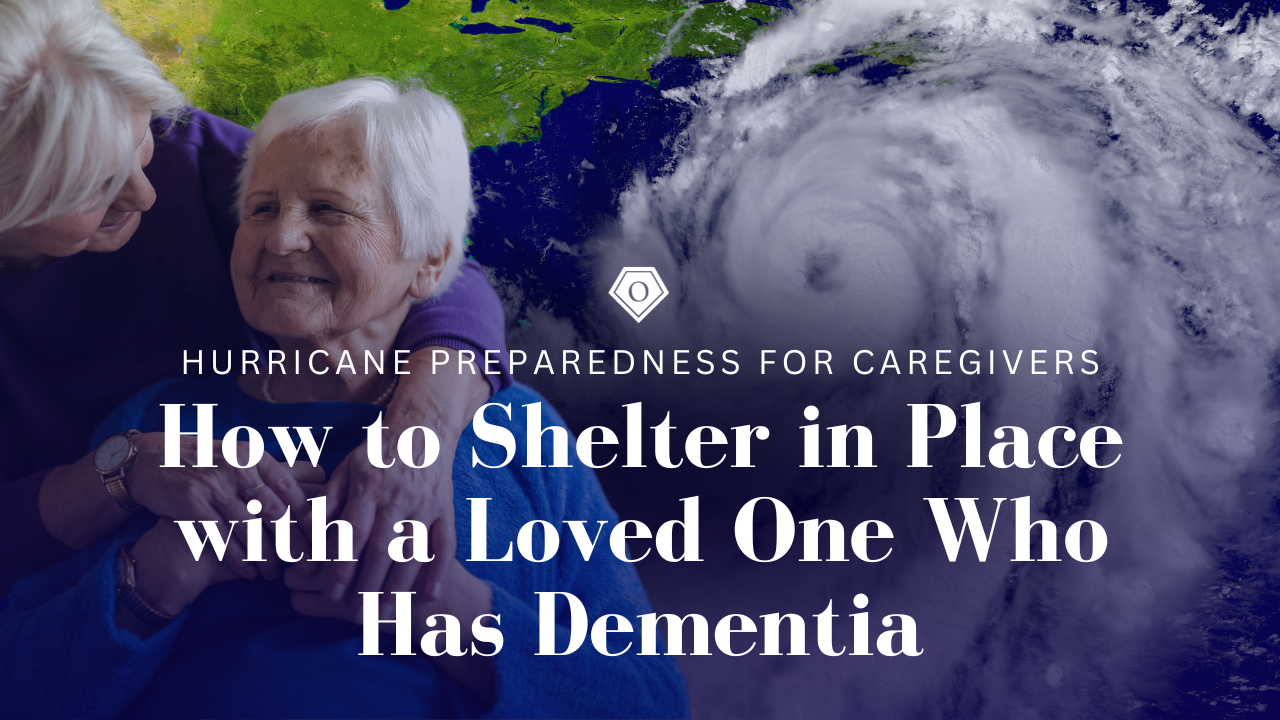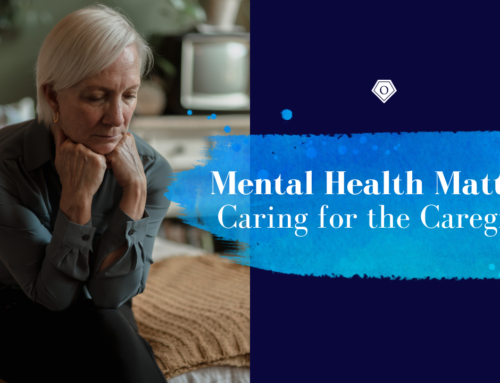Preparing to shelter in place for a hurricane while caring for someone with dementia or Alzheimer’s requires careful planning to ensure both safety and comfort.
Create a Safe Environment
- Secure the home: Move objects that could become hazards during the storm (loose furniture, glass objects, etc.) to safe areas. Install window protection (e.g., shutters or plywood).
- Limit access: Ensure the person cannot access dangerous areas or items (such as sharp objects or cleaning supplies).
- Use labels: Clearly mark essential rooms like the bathroom, as stress can increase confusion in people with dementia.
Prepare a Care Kit
- Medication: Pack at least a two-week supply of medications, with clear instructions on dosages.
- Identification: Ensure the person wears a medical ID bracelet or has identification with details about their condition, in case of separation.
- Personal Comfort Items: Familiar objects (blankets, photos, favorite snacks) can help reduce anxiety. Bring along activities they enjoy like puzzles or books to keep them calm.
- Incontinence Supplies: Stock up on disposable briefs, pads, and any other personal hygiene items.
- Medical Information: Keep a detailed list of the person’s health conditions, medications, and contact info for doctors in a waterproof bag.
Prepare for Communication and Comfort
- Create a routine: People with dementia rely on familiar routines, so try to keep meal times, rest periods, and activities as consistent as possible during the storm.
- Reduce Anxiety: Avoid overloading them with too much information about the hurricane. Stay calm and reassuring to help manage their stress levels.
- Noise Control: Use headphones or white noise machines to block out the sound of the storm, which can be distressing.
Plan for Power Outages
- Backup power: Ensure you have battery-powered or hand-crank flashlights, radios, and fans.
- Climate control: Keep the person cool, as those with dementia may not be able to regulate their body temperature well.
- Medical equipment: If the person uses medical equipment that requires electricity (e.g., oxygen machines), have a backup power source or battery and alert authorities ahead of time.
Develop an Emergency Plan
- Evacuation options: Even if planning to shelter in place, have a backup evacuation plan in case the situation worsens. Identify nearby shelters that are dementia-friendly or accommodate special needs.
- Inform neighbors: Let neighbors or nearby family members know you are sheltering in place with a person who has dementia, in case you need assistance.
Food and Water
- Stock enough supplies: Ensure you have enough non-perishable food, water (1 gallon per person per day for at least three days), and easy-to-eat snacks.
- Familiar foods: Stick to familiar foods that the person with dementia likes to eat to avoid additional stress or confusion.
Stay Informed
- Keep updated: Use a battery-powered radio to stay updated on weather conditions and emergency instructions.
- Alert authorities: If possible, notify local emergency management that you are caring for someone with dementia so they can offer specific assistance if needed.
Prepare Mentally and Emotionally
- Have support: If you are the sole caregiver, ensure that you have emotional support (from family, friends, or professional services) during this stressful time.
- Monitor closely: The stress of a hurricane can exacerbate confusion, agitation, or aggressive behaviors in people with dementia. Be patient and prepared for mood changes.
By planning ahead and creating a calm, safe environment, you can reduce stress for both yourself and the person you’re caring for during a hurricane.
Alzheimer’s and Dementia Care
Onyx Home Care’s neurological disorder care is built around a system of support. This service includes skilled home care as well as a unique program that centers on the patient’s interests and stage of illness. Our goal is to see happy family members, patients and caregivers. Often times, caregivers feel remote. Our team includes each person in the home care process to provide inclusive care that helps the patient thrive.






